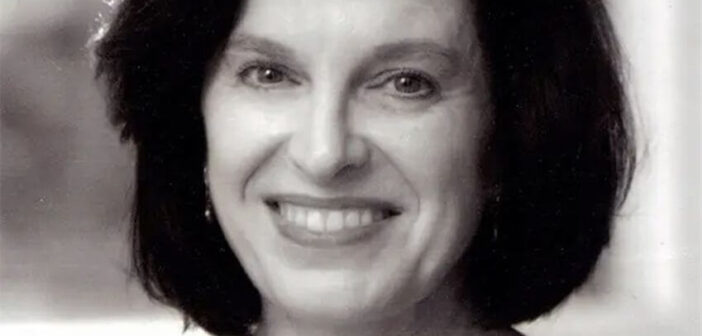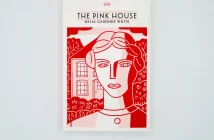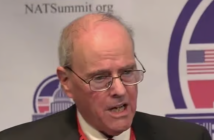Claudia Emerson (1957 – 2014) won the Pulitzer Prize for poetry for her book Late Wife in 2006. I think she would have been eventually chosen as the United States Poet Laureate if her brilliant career hadn’t been cut short by cancer.
She not only published eight collections of verse, but she was also a gifted teacher and musician. I knew her because we were in the same class at Chatham Hall, an all-girls’ school in Pittsylvania, County, southside Virginia. We were the class of 1975.
Chatham Hall was founded in 1894, originally named Chatham Episcopal Institute, and our most famous graduate was Georgia O’Keeffe. The school’s motto is Esto perpetua – “Let it be perpetual.”
Years at Chatham Hall
Both my mother and godmother attended; I was a boarder from Richmond and Claudia was a day student from Chatham. As I peruse old yearbooks, The Chathamite, I see photos of her on the yearbook staff and as a singer in Sextet while I played all sports and was in Dramatic Club. Senior year she was on Student Council. I wasn’t.
Our lives in a girls’ school with a student body of about 135 in the tiny town of Chatham must have had an enormous impact in helping us both become writers. I have published articles and essays for over forty years; she became an English and creative writing professor, publishing widely, editing journals, appearing at writers’ conferences, and winning awards. A celebrity.
The start of a teaching career
I majored in history at Kenyon College and in 1980 travelled around the world and settled in the Seychelles for two years; when I returned home, after such an adventure, I started writing.
Claudia chose a different path. She graduated from the University of Virginia with a degree in English and returned to Chatham and worked as a part-time rural mail carrier and managed a used bookstore.
Spending the day with all those books, writing songs, reading authors like Rainer Maria Rilke and his Letters to a Young Poet, inspired her so she enrolled and was accepted into the creative writing program at the University of North Carolina at Greensboro where she earned a master’s degree. She chose poetry as her métier.
In the coming years, her teaching career took off. Not only was she the Dean of Students and head of the English Department at Chatham Hall, she also taught at a long list of schools including fifteen years at the University of Mary Washington (UMW) and the final year of her life at Virginia Commonwealth University (VCU) where she achieved her dream of teaching graduate students.
Prolific output and numerous awards
Louisiana State University Press published all her books in their Southern Messenger Series: Pharoah, Pharoah (1997); Pinion, an Elegy (2002); Late Wife (2005); Figure Studies (2008); Secure the Shadow (2012); The Opposite House (2015); Impossible Bottle (2015); and Claude Before Time and Space (2018). The last three books were published posthumously.
Moreover, she won a long list of prizes and fellowships including the Academy of American Poets Prize; a National Endowment for the Arts fellowship; a Guggenheim; and from 2008 to 2010 she was poet laureate of Virginia.
Her work was highly anthologized, and she published in dozens of journals and magazines, including Southern Review; Blackbird; New England Review; Ploughshares; and even The New Yorker.
And Claudia just wasn’t a poet and teacher. She played her Gibson guitar well, wrote songs, and performed with her husband, Kent Ippolito.
A kaleidoscope of subjects
What did Claudia Emerson write about? Everything. Life in a small southern town, Mother Nature, our school, her family, mortality, all of the characters and nuances from the rich life she had led.
Her work is a kaleidoscope of stories written by a poet with a practiced eye and flowing hand who noticed all. In an interview, she once said she “processed the world through poetry” which is why she was such an eloquent interpreter for her readers.
I rarely read poetry but even her poems speak to me. Late Wife is something all of us should have on our shelves. Claudia writes of love and loss and rejuvenation through a series of letters written to her first husband after their marriage comes to an end, her journey through heartbreak and healing, and the final chapter is sonnets to her second husband who had lost his wife to cancer.
The depth and brilliance of the book are stellar. Rereading these poems after all these years was like going to a movie I had seen before: I knew the husbands, the lover, Claudia, so for all the highs and lows, I knew what was coming.
In an interview with the journal Blackbird in describing the book she said, “In my mind, it’s sort of a call-and-response kind of book, where I disappear from my life in some ways to reappear in another life where there has been a disappearance.”
David Wojahn, a poet and English professor at VCU called the book “a masterly managed narrative” and deserved the Pulitzer Prize because “It’s a very self-possessed and tender book, deserving of the prize in part because of Claudia’s command of form – particularly the sonnet – and because of the book’s unity.”
It would be difficult for me to critique Claudia’s work. I am neither a professor nor a poet, so I cannot write of pentameter, narrative structure nor threnody yet Claudia wrote from the heart and captured detail in a deep and enduring way; these are poems I actually understand.
Influenced by many, a word scientist upturning the rocks of life, probing the emotions of the human condition whether true or imagined. I enjoy her poems so much because they are graspable.
Now that I am rereading her work, I remember how verse can elevate prose — Pat Conroy read a poem each morning before he started writing for this very reason. These poems encourage a writer like me to slow down. Look. Listen. Remember. Take notes. Ponder.
The other day I did this while driving around the small town where I live, and I noticed the red tulips in front of the Presbyterian church had splayed, the sheriff or someone from his department was having lunch at the Blackstone Herb Cottage, and a couple was arguing in front of the post office. (Oh, all right. I made the last one up.)
When asked about Claudia’s writing, Frazier Armstrong, who grew up in Chatham and attended Chatham Hall said, “In a word, she gave me courage. She gave me someone to aspire to become.”
As a writer of sorts, and poetry being my chosen medium, I ate every word. I watched her struggle with her first marriage, I watched her evolve and turn outward and into her talent. She was always cool and calm or appeared to be. She showed me what quiet looked like.”
The details of a writer’s life
Most of us writers and readers are interested in the details of writers’ lives. What work habits did they have? According to her widower, Kent Ippolito, who still lives in their house in Richmond, Claudia always kept journals, writing regularly in her Moleskine notebooks and using her Retro ‘51 or Pelican pens.
He explained she would often research these words and phrases, and many found their way into her writing. Some of the “valid but unused ideas” would migrate to her next journal. Often, she would carry these thoughts around for years.
According to Ippolito, Claudia would come up with an idea for a book, then gather her ideas and start writing poems. Once she had enough poems to match the concept, she’d arrange them for a book and if the poems took on a new life and didn’t fit current themes, she would hold on to them for the future.
“Claudia constructed her books in the way a composer does a symphony,” said Wojahn. “Each of them has a prevailing theme and cast of characters. Few poets are able to create the sort of unity that Claudia managed to feature in all of her books.”
Impact on her students
When I interviewed some of Claudia Emerson’s students, it was clear that she not only had an impact on their writing, but also on their careers.
Lindley Estes, a former student at UMW said Claudia “could really impart her love for poetry,” and “she was the gem of the English department” and “sassy,” a professor who had so much time for her students. As time passed, Estes concluded she probably wouldn’t be a poet and Claudia helped her realize she was still a writer and lyricism could play a role in prose as well. After a successful career as a reporter, Estes will begin teaching journalism at UMW and creative writing at George Mason University this fall.
“She was always there to help writers,” Estes recalled.
I’m sure there are many more students out there whom Claudia helped, including me. Not only did she agree to teach a workshop at my daughter’s high school, but she also wrote a recommendation so I could audit a two-semester novel-writing class at VCU.
Allison Seay, teacher, award-winning poet, teacher, and also a former student of Claudia’s, said “she was the kind of teacher that revered her students. The kind of teacher who revered nature. The kind of teacher that did not shy away from difficulty or pain or the grotesque or the real. The kind of teacher who believed The Soul – the numinous, the divine – was always in the room.”
Seay considered Claudia a mentor, a muse, and when asked what she had taught her as a poet, she explained, “I learned from Claudia, above all else, that all writing is a radical act of hope. Even deep sorrow, in form, is the seed of hope.” (On a personal note — years ago, Ms. Seay taught my daughter high-school courses in rhetoric, composition, and elegy. My daughter, now a budding actress in Los Angeles, said those classes had a profound impact on her so clearly the light of Claudia shines on in many ways.)
Bittersweet memories
It is hard to write about a late friend because I am remembering not only her illness and death, but the good times as well. The reunions, the dancing – Chatham Hall girls love to dance – the time my husband and I went to visit her when she was living in the old post office in Chatham, and we forgot our baby’s suitcase and had to go to The Dollar Store to buy a weekend wardrobe. The time I hosted a party for her when she won the Pulitzer and later, after everyone had gone home, Claudia said the best line ever, “I’m not proud of myself because I won a Pulitzer. I’m proud of myself because I won a Pulitzer and didn’t become an #$%^&#!”
In her final years, Claudia and I didn’t see each other much. She had an enormous career, and I was living the suburban life, raising a daughter, and working as a fundraiser. By the time she moved to Richmond, the cancer had returned.
Shortly before her death, my husband and I went to a reading featuring Claudia and other well-known poets. We sat up front, awaiting excitedly. I remember one of the panelists was Natasha Trethewey, a Pulitzer Prize winner and U.S. Poet Laureate.
And then we were told Claudia would not be able to attend because she had fallen and broken her arm. She died a short time later, age fifty-seven, of complications from colon cancer.
Claudia Emerson’s legacy
Claudia Emerson has left us quite a legacy. “She was one of the most essential poets of her time, and she will continue to find readers, “observed Wojahn. “Because of her talent, of course, but also because of her ambition, especially toward the end of her life, when she wrote with a fervor that amazes me. She has much to teach us.”
According to Ippolito, there are enough unpublished poems to publish another collection.
In the coming weeks, on a fine spring day, I will drive the 100 miles to Chatham to visit my alma mater and I will meander up the serpentine road to that ivory tower on the hill so I can remember my schoolgirl days.
Later, I will walk around town, visit a bookstore, look at some antiques, maybe eat a grilled cheese sandwich in a quiet restaurant. And then I will visit Claudia’s grave. Her husband told me she is easy to find: she rests at the back end of a memorial garden with her mother Mollie, her father Claude, and her brother Bev.
Claudia Emerson deserved a better ending. For the people she left behind, life has never really been the same without her voice, her light, and her laugh.
Esto perpetua, Old Friend.
Image used with permission by Chatham Hall.
Contributed by Tyler Scott, who has been writing essays and articles since the early 1980s for various magazines and newspapers. In 2014 she published her novel The Excellent Advice of a Few Famous Painters. She lives in Blackstone, Virginia where she and her husband renovated a Queen Anne Revival house and enjoy small town life.



